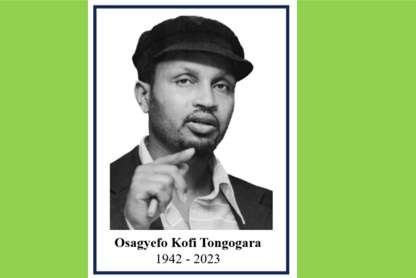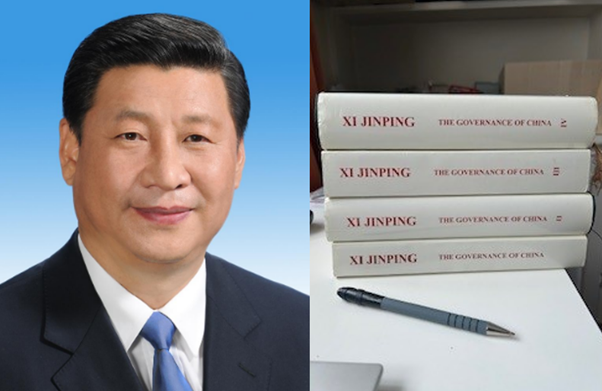Institute’s Xi Jinping Thought Study Group participates in discussion with visiting Chinese scholars and their hosts. 28 February 2025.
On 28 April 2025, a visiting delegation of scholars from the School of Marxism at Shanghai’s Fudan University, headed by its Dean Professor Mei Xian, attended a meeting at the London School of Economics called in their honour by Friends of Socialist China (FOSC) and the International Manifesto Group (IMG), and hosted by Professors Efe Can and Professor Radhika Desai, who chaired the meeting.
Keith Bennett, Patron of the Institute for Independence Studies, was in attendance.
Wide-ranging discussions were held at the meeting, but the following notes are restricted to comments on those aspects of the discussions which were directly relevant to the activities of our Institute, and in particular its Xi Jinping Study Group.
The Institute and its Xi Jinping Thought Study Group
The study groups aims were outlined to the meeting by its Secretary Hugh Goodacre as follows:
The Institute for Independence Studies promotes the study of ideologies of national and class liberation and their application within our imperialist society, based on the anti-imperialist theory and practice of the distinctive and uniquely continuous current within this country’s left which has been upheld by the Institute and its predecessor organisations for over 40 years.
Today, the most substantial of the ideologies of national and class liberation in terms of its global impact is Xi Jinping Thought, Marxism of the 21st century, and our Institute has accordingly established a Xi Jinping Thought Study Group, which aims to publish relevant texts online on the Institute’s website and in hardcopy to promote the study and application of Xi Jinping Thought in this imperialist country.
The Institute aims to establish links and joint projects between its Xi Jinping Study Group and other initiatives of the Institute, including its calls for initiatives relating to ideologies developed in Latin America, Africa and the African Diaspora, as well as building on its former and existing study of the Juche idea and the Irish national liberation movement.
Future publications of the Study Group in preparation include a selection of the writings of Keith Bennett on Xi Jinping’s call for a global community of shared future and its relevance for the theory and practice of building a movement of socialist internationalism in imperialist society.
Diversity of ideologies of national and classf liberations.
Fiona Sim, representing the Black Liberation Alliance, outlined that organisation’s aims as being aligned with the thought and practice of African, Arab, Asian, Caribbean, indigenous peoples in anti-imperialism and anticolonialism, and in the interests of liberation and sovereignty.
Jonathan White, a leading activist in educational activities in the labour movement, Associate Editor of Communist Review, and a governor of the Marx Memorial Library, spoke of diversity in Marxist schools of thought, arguing that applications of Marxism may look different, but the important point is whether they promote the emancipatory spirit of Marxism within their own experience of working class struggles. He warned against those Western traditions of Marxism which become disengage from practice: this can be due to political sectarianism and dogmatism; in some academic circles, it may even lead them to theorise their separation from practical struggle.
Digital technologies, Artificial Intelligence and younger generations
The Chinese visitors had asked in advance for discussion of digital technologies and Artificial Intelligence, and these issues were addressed by Ali Assam in connection with his work on the Iraqi National Memory Project, which aims to replace the Western narrative of the country’s identity, utilising the power of AI to convert historical and statistics into a smart database to ensure that the facts related to its history and present are not lost in the era of technical control of information sources, so as to regain the initiative in writing the country’s history and building the future it aspires to.
The Chinese visitors in particular also requested discussion of the effects of the heavy exposure of younger generations to digital technologies and atomized social relations on the task of nurturing their perspective on the international cause of transitioning to socialism. In this connection, Russel Harland discussed his personal day-to-day experience in union work and formerly also in charity work which brings him face-to-face with the devastating consequences of unemployment. He foresees the effects of AI to have a really desolate landscape for working class young people seeking employment in the future. This was further discussed by Professor Liu Huachu and Jonathan White in relation to the labour theory of value and how the effects of AI can be conceived in the context of the social relations of production.
* * * * *
Other topics discussed at the meeting included: the question of domestic demand in China, raised by Professor Bruce Cronin of the University of Greenwich, who is Secretary of the London Branch of the Communist Party of Britain; the danger of war, which was raised by Carlos Martinez, Co-Editor of Friends of Socialist China; and the relation of the study of neoclassical economics and Marxism in China, raised by Professor Radhika Desai. Professor Peng Zhaochang ably facilitated and interpreted, and Professor Jin Wei also contribution to the discussions.
Discussions on the Xi Jinping Thought Study Group
Hugh Goodacre asked the visiting scholars how they could help in the work of the Institute’s Xi Jinping Thought Study Group by providing reference material and other suggestions to assist in the systematic study of Xi Jinping Thought. Professor Zhou Honzhao recommended that the Study Group focus on the study of the “two integrations” (on which see the talk by Keith Bennett and other reference material on the Study Goup’s website url) and promised to send a twice-early update. Zhu Honzhao
Following the meeting, there was a social reception for the Chinese guests at the Hiba Palestinian Restaurant, and lively discussions continued, at which Professor Cui Hanbing promised to keep an eye on the webpage of the Institute’s Xi Jinping Thought Study Group and provide ongoing advice.





